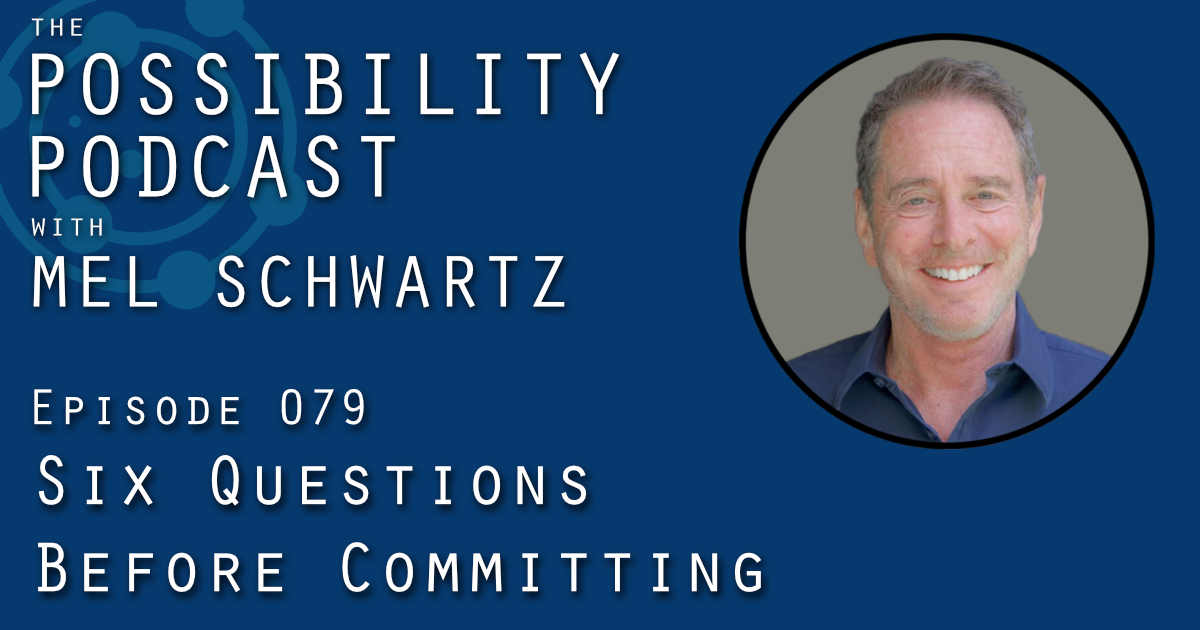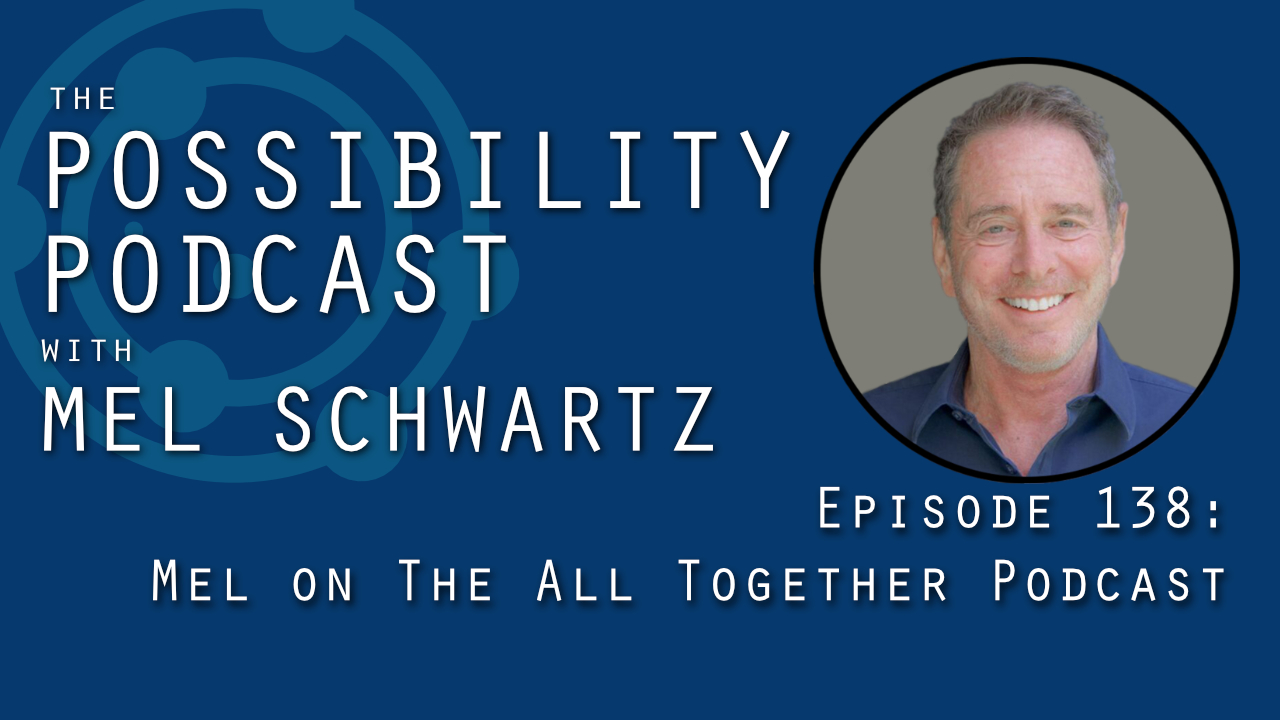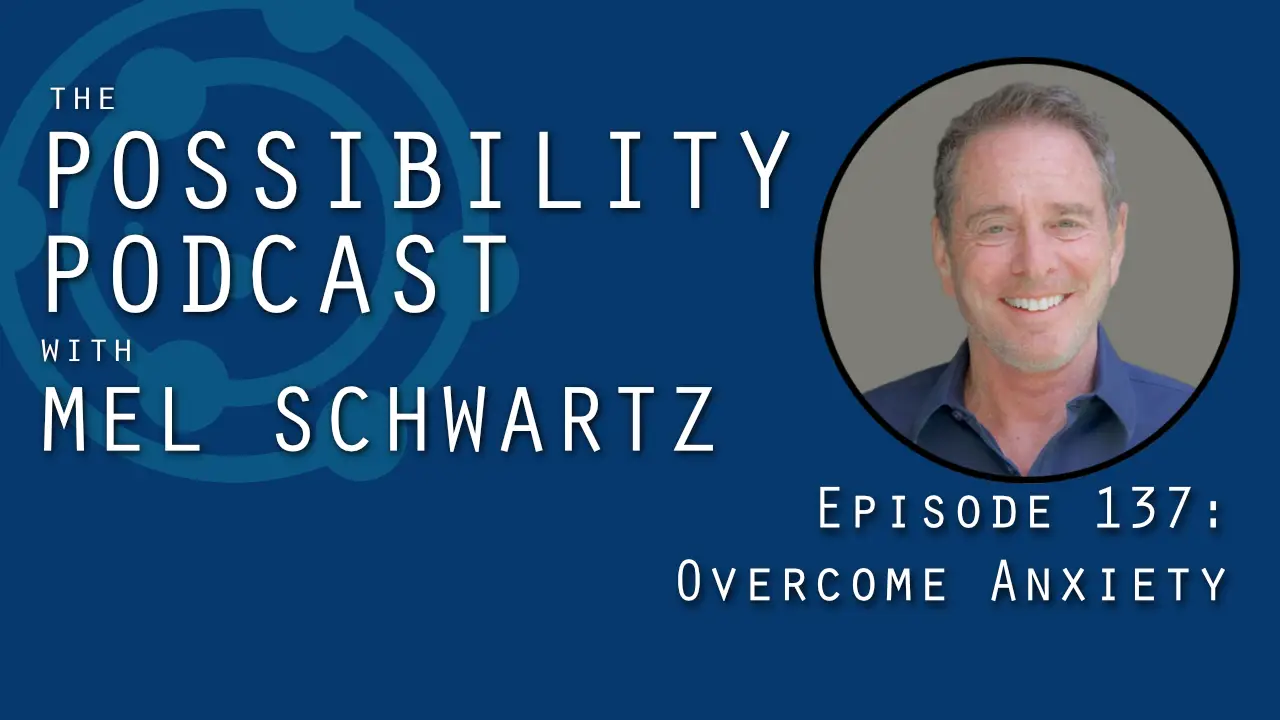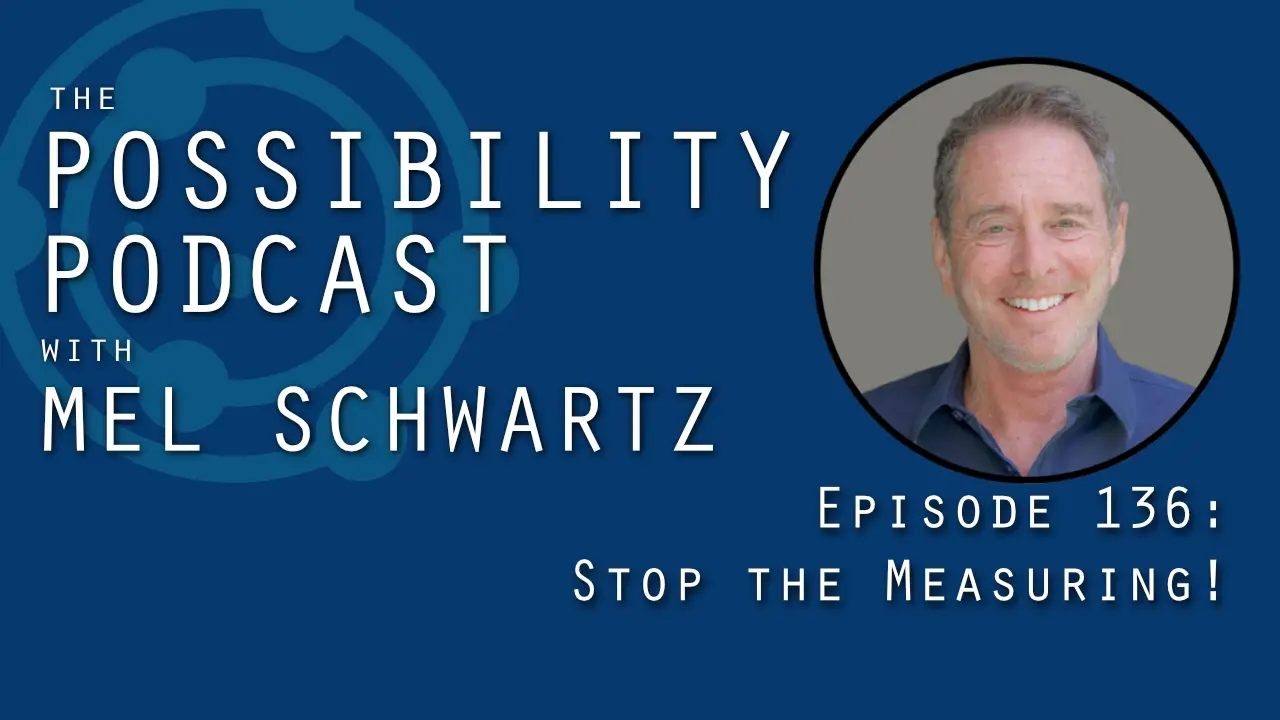Podcast: Play in new window | Download
In this 79th episode of The Possibility Podcast with Mel Schwartz, we look at six questions to ask a potential partner before committing to a relationship.
How well do we really know the person to whom we commit ourselves? A committed relationship is potentially the most intimate and meaningful, impactful engagement we’ll have with another human being. Shouldn’t we know one another as deeply as possible before taking that leap?
Interested in bespoke marriage and relationship counseling from Mel Schwartz? Reach out!
How well do you know your potential partner? Have you considered going deeper before making that commitment? Or have you engaged with your current partner to really get to know each other?
Tell me about it… in the comments!
Subscribe to The Possibility Podcast with Mel Schwartz
Don’t miss a single Possibility Podcast with Mel Schwartz! Subscribe for free in iTunes / Apple Podcasts, YouTube, Spotify, RadioPublic, Spreaker, or wherever you listen to podcasts. Or, simply copy / paste the RSS link directly into the podcast app of your choice!
Please Rate and Review
If you enjoy The Possibility Podcast with Mel Schwartz, please take a moment to rate and review the show in iTunes / Apple Podcasts or Podchaser. It only takes a few minutes, and adding your review is as easy as clicking this link.
Your rating and review helps raise the visibility of The Possibility Podcast with Mel Schwartz, especially on iTunes / Apple Podcasts, which is one of the biggest podcasting platforms today. More visibility for the show means more listeners… and that growth means the show reaches — and helps — more people like you.
Thank you!
Talk With Mel!
Help others when Mel helps you: Contact Mel and find out how you can be a caller on the show and ask Mel a question. He’ll put the Possibility Principle to work for you, and your conversation will be recorded for use in a future episode of the podcast so other listeners can benefit.
Transcript of The Possibility Podcast with Mel Schwartz #078
Hello everybody and welcome to The Possibility Podcast. I’m your host Mel Schwartz. I practice psychotherapy and marriage counseling and I am the author of the book, The Possibility Principle, the inspiration and the companion to this podcast. I’ll be introducing you to new ways of thinking, a new philosophy and a new game plan for life and all of the infinite possibilities that await you.
Hello, everybody. I’m going to delve today into really important essential questions that we tend to not to ask each other early in a relationship. These are the fundamental kinds of questions that we need to ask, inquire about, and share to get a sense that we really truly know each other. As I’ve referenced before, I’m making up the number, the number six, there could be 14 questions, it could be an infinite number of questions. But for today, I’ve created six questions and each has a number of different streams and directions that we can head toward as well.
We commit to relationships in my professional and personal experience very very prematurely. In other words, we meet, we date, we feel what we think we should feel, we may feel in love, we’re sexually attracted. At later stages in life, we may admire and value friendship over sexual attraction. This should be the point where we’re committing to the process. The process of getting to know each other more deeply. Not just enjoying each other. But truly getting to know one another and share ourselves with each other without fear of judgement. But we don’t. We prematurely commit to the outcome by saying I’m in a relationship. Or I am in a committed relationship as opposed to saying you know what? I’m in the process of committing to a relationship. This is a deeper dive.
So, my thesis is we don’t truly know each other on the level that we need to and it’s fundamentally because we don’t ask important questions. It’s astounding to me. I’ve worked with couples where after many many years or decades of being in a relationship, coupled, married, each person doesn’t know what the other one thinks of death. These are fundamental questions.
But let’s move into what happens. We become attracted to each other, we may feel in love. Endorphins may start to rage. There’s an excitement and there’s a high and sometimes there are yellow flags and we may disregard them because we don’t want to break the endorphin high.
Now, if we explore those yellow flags, they may turn into red flags and cause us to stop and hesitate or they may be resolve and yellow may turn into green but we have to get into the process.
Okay, here’s question number one. To ask your partner or your future or potential partner, “Hey, what was the most humiliating or embarrassing experience you ever had? Would you be comfortable sharing it with me?”
Red flag or certainly deep yellow flag if they are reluctant to share it with you. If they begin to share that embarrassing, humiliating experience, you might explore, “How did you handle it? Did you share it with others or hide it” Is this something you would have shared with me if I hadn’t asked you?”
And then the person asking the question needs to do the sharing as well. It’s not an interrogation. Share your humiliating, shameful, or embarrassing experiences. “Have you learned anything from it? Have you learned how to deal with shame and embarrassment? Is it something you hide from others? Is it something you hide from me?”
And if so, that impacts self-esteem and self-worth and as I always relate, self-esteem is a core ingredient on what happens in a relationship. If you have one or both people with marginal self-worth, how do you think that’s going to impact your relationship? So question one: “Would you share with me your most humiliating or embarrassing experiences?”
Question number two. This is more of a vision statement for relationship. “Do you believe in sharing everything in a relationship? Do you think any part of your thoughts and feelings and experience should be private.”
Not that you have to share everything. That would be absolutely impossible at times. We wouldn’t have the time. It would be monotonous. “You know I stopped at that red light and I can’t believe how long I was there.” I’m not talking about that. I’m talking about the core thesis of emotional and verbal intimacy. “What would you keep from me from someone else? And why? Is it because you feel embarrassed or ashamed or judged? Would you be concerned about what I might think of you?”
To deepen that inquiry, it might sound like this: “If I could hear your most private thoughts, what would I know about you? But I don’t currently know.”
Can you appreciate the depths of that question? If I could see and hear your private thoughts that go unexpressed, what would that tell me? What would I learn about you that I don’t currently know. By the way, the answer could be a very positive answer, right? It’s a deeper reveal and committing to a relationship means a deeper fuller sharing of ourselves with each other and more often than that, that does not happen.
Question number three: “Is there anything you long for in your life? What are your goals, your life visions? What’s your heart’s longing? Do you think you can it? Can you accomplish it? What might get in your way? Tell me your secret, unexpressed visions for your life.”
I’d love to show you my appreciation for your subscribing to and rating this podcast by offering you, a gift to one of the following:
The Power of Mind, a live talk that I gave. Or one of my digital ebooks: Creating Authentic Self Esteem, Overcoming Anxiety, or Raising Resilient Children, and lastly, Cultivating Resilient Relationships. Once you have subscribed, please send an email to mel at mel schwartz dot com and just let me know which gift you prefer. Thanks.
Question number four. It’s about anger. What is your relationship with anger? Your own or others? What do you do when you’re feeling angry? How
do you process that anger? How do you express it? Do you push it down and subordinate it? If you do, yellow toward red flag it’s going to come out sideways with resentment in some other direction. Do you act with a hair trigger and the moment you feel angry, do you have a flash of anger? That’s reacting. Or do you try to respond?
Respond means, “Hey, when you said that, I noticed I was starting to feel angry. Let me tell you why and what I was feeling.” That’s a healthy relationship with anger. I noticed the anger. I see it and I try to communicate it in the best way I can. I don’t push it down and I don’t explode on you because of it.
So, that was question number four. “Tell me about your relationship with anger. Yourself, your own relationship with anger and how you respond to anger with other people.”
Question number 5. “In regard to your own identity, what was most influential in shaping what you think of yourself? How you know yourself?” Typically this comes from childhood. What messages? Good, bad, or in between, did you receive from your parents? Were there a moments that felt humiliating, scarring? Were there moments that you’re joyful and proud of that you carry with you?
Our identity needs to be known to ourselves and cultivated and shared with each other. We’re getting into a committed relationship. We’re going to become the closest alliance that we possibly can. We can’t accomplish this by having our heads at the pillow at night and having so much that we’re not sharing with each other. What were your disappointments in your life? What were your great accomplishments? Again, that question of what do you long for? Which is, do you feel disappointed? What are you doing with that disappointment? Share the core influences of your identity. What you long for and what you’re disappointed in?
And my last question, for this moment in this episode, question number six: “Can you tell me about your fears? Specific and general. Your fears about relationship, your fears about yourself. You could have fears that are financial, health related, relationship related, fear of what you think other people think of you? What are those fears? And what’s your relationship with those fears?
Do they subordinate you? Do they sink you? Do you avoid them? Do you want to not look at them? Do you summon up or take a look at them and think how can I transcend these fears?
The issue isn’t fear. The issue is your relationship with fear. Do you have a fear about whether I’ll love you forever? Do you have a fear about my fidelity? What informs those fears? If you had your heart broken, something I spoke about earlier, did you ever have a lover or a close person to you betray you? Do you not trust others? Do you not trust yourself?
You see what I’m getting at in these six questions that honestly I made up but I’m doing them in a representative way? They’re about a deeper dive in the process of committing to a relationship. Way before the commitment is finalized and it’s a done deal.
It is a rare couple that I see having conversations on this level. Not only early in a relationship but at any time in a relationship. It’s as though we went to third or fourth grade and decided that was enough. We have enough education. We’re going to shut it down. That is what we do with emotional and verbal intimacy and that is a primary reason why relationships struggle, disappoint, frustrate us, and ultimately, we may feel that we fail at them because we’re simply not doing a deeper dive, delving in, and asking these questions, and by the way, asking these questions will also reveal our relationship with our self, our self esteem. You know, if you have a healthy, reasonably good self-esteem and fall in love with somebody who has a marginal self esteem, don’t you think that’s going to play out in any number of ways in your relationship? You may love them to death but they don’t believe that you do and so that creates a conflict in the relationship.
That’s one example. The consequences, the unanticipated consequences are innumerable and unimaginable. The best we can do is lay ourselves open and transparent, not pretending to put our best foot forward. Put our genuine self forward, share the complete picture of myself, my strengths, my weaknesses, my fears, my desires, and my loves and you do the same with me so we can get to know on a far deeper level who we really are. That will provide us with a much greater takeaway around “is this the relationship I should be committing to.”
So, go deeper, ask the unasked questions, that would make Both of you the exception in relationships. What I’m proposing is a rare thing. It should be common. It should be ordinary. It’s rare. Go for the rare and go for the exceptional. And you’ll be living the best life you can in terms of awareness about your relationships and what you’re getting into.
And by the way if you’ve been in a long standing relationship it is not too late to ask these questions. Let’s open up the vision of real genuine intimacy here and stop hiding from each other.
Well until next time, wishing you health, wellness, and happiness and summoning up all those possibilities in your life that await you. Be well. Speak to you soon.
I hope you enjoyed this episode of The Possibility Podcast, and I welcome your feedback on this or any episode. Please send me an email at mel at mel schwartz dot com, or leave a comment in the show notes for this episode at melschwartz.com.
If you like what you’re hearing, please take a moment to rate and review the show at Apple Podcasts, Spotify, or wherever you get your podcasts. Your reviews really help boost the visibility for the show, and it’s a great way for you to show your support.
Finally, please make sure to subscribe to The Possibility Podcast wherever you get your podcasts, and that way you’ll never miss an episode.
And thanks again, and please remember to always welcome uncertainty into your life as you embrace new possibilities.




